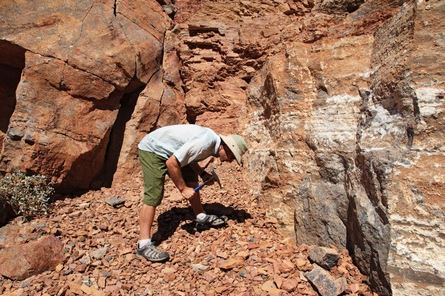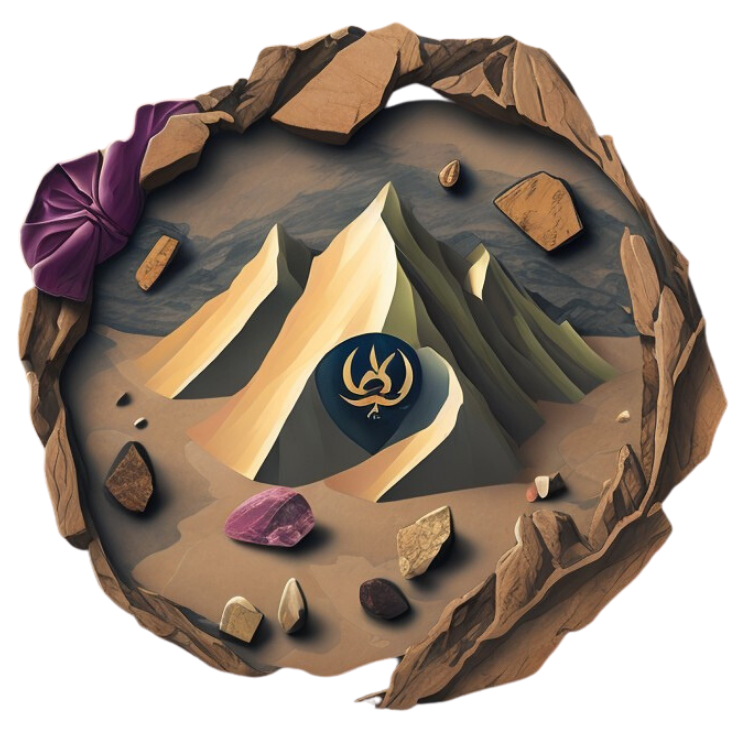
As rockhounds, we have the unique privilege of connecting with the Earth's history through the treasures we find. However, this privilege comes with the responsibility to collect ethically and preserve our natural resources for future generations. Ethical rockhounding ensures that our passion for collecting doesn't harm the environment or compromise the experiences of other rockhounds.
By adhering to ethical collecting practices, we can all contribute to the sustainability of our hobby and ensure that the beauty and wonder of natural landscapes are maintained for years to come. Let's explore the key principles of ethical rockhounding:
1. Know the Rules and Regulations
Before embarking on any rockhounding adventure, take the time to research the specific rules and regulations governing the area you plan to visit. These regulations vary depending on whether you're collecting on public or private land, and they may also differ based on the type of specimen you're seeking.
- Public Lands: National parks, state parks, and Bureau of Land Management (BLM) lands often have specific restrictions on collecting. Some areas may be designated as "no collecting" zones, while others may allow limited collection with a permit. Always check the official websites or contact the managing agency for up-to-date information.
- Private Lands: Always obtain permission from the landowner before collecting on private property. Respect their wishes and any guidelines they may have in place.
2. Minimize Your Impact
While exploring and collecting, be mindful of your impact on the environment. Follow these guidelines to minimize your footprint:
- Stay on Trails: Stick to designated trails and roads to avoid trampling vegetation or disturbing fragile soils.
- Fill Holes: If you create any holes or excavations while digging, fill them in before leaving. This helps prevent erosion and protects the natural landscape.
- Pack Out Trash: Leave no trace of your presence. Pack out all trash, including food scraps, wrappers, and even small rock chips or fragments.
- Avoid Damaging Plants: Be careful not to trample or damage plants, especially rare or endangered species.
3. Collect Responsibly
Responsible collecting means taking only what you need and leaving the rest for others to enjoy and for scientific study.
- Limit Your Take: Don't collect every specimen you find. Take only what you can realistically use or appreciate.
- Leave Rare Specimens: Rare or scientifically significant specimens should be left in place for research and educational purposes. Take photos and detailed notes instead of removing them.
- Avoid Over-Collecting: Be mindful of over-collecting from a single site, as this can deplete resources and negatively impact the environment.
4. Respect Other Rockhounds and Landowners
Rockhounding is a shared experience, and it's important to respect the rights and enjoyment of others.
- Be Courteous: Avoid overcrowding popular collecting sites. Be mindful of other rockhounds and give them space to enjoy their hobby.
- Ask Permission: Always obtain permission before entering private property. Respect any guidelines or restrictions set by landowners.
- Share Knowledge: Be willing to share your knowledge and expertise with fellow rockhounds, especially newcomers to the hobby.
5. Educate Yourself
The more you know about the geology and mineralogy of your area, the more rewarding your rockhounding experience will be.
- Research: Learn about the different types of rocks, minerals, and fossils found in your region. Familiarize yourself with their identification characteristics and geological context.
- Join a Club: Consider joining a local rockhounding club or organization. These groups offer valuable resources, field trips, and educational opportunities.
6. Promote Conservation
As ethical rockhounds, we have a responsibility to protect and preserve our natural heritage.
- Support Conservation Efforts: Consider donating to organizations that work to protect natural areas and geological resources.
- Participate in Cleanups: Join or organize clean-up efforts at collecting sites to remove litter and debris.
- Spread the Word: Educate other rockhounds about ethical collecting practices and encourage them to adopt a Leave No Trace approach.
By following these ethical guidelines, we can ensure that rockhounding remains a sustainable and enjoyable hobby for generations to come. Let's work together to protect our natural treasures and leave a positive legacy for future rock
